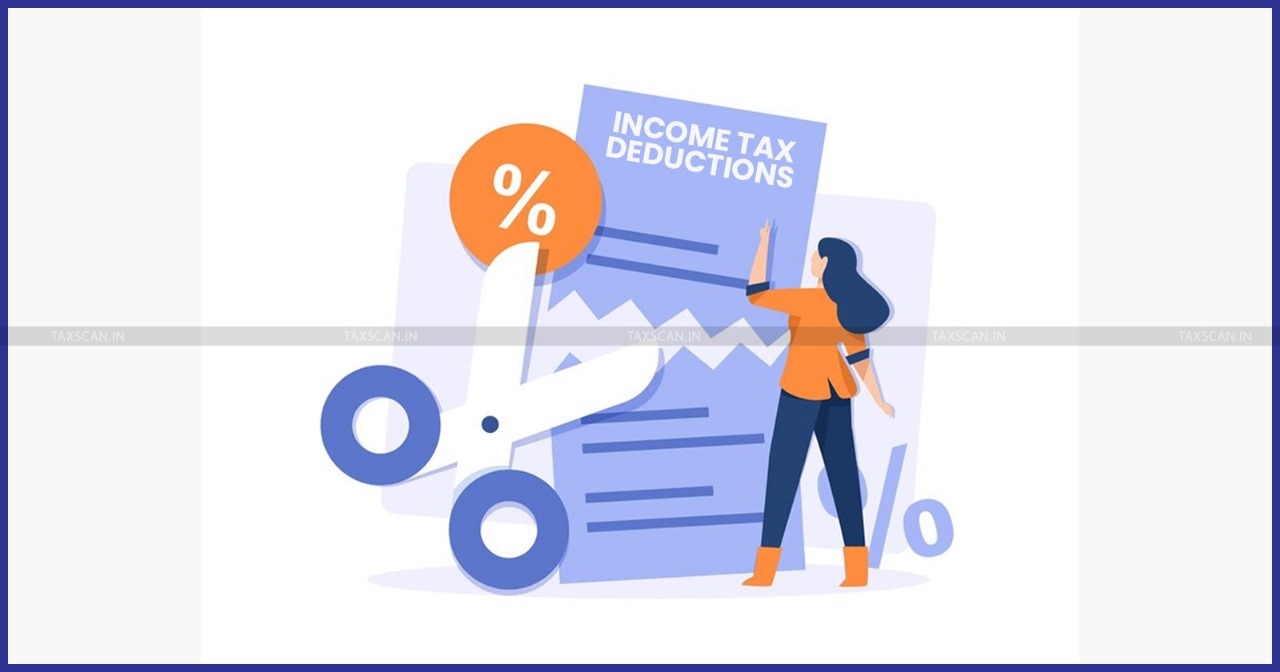Relief to Mahindra & Mahindra Ltd, AO Has No Jurisdiction to Alter Net Profit in P & L Account Except Under S. 115J of Income Tax Act: Bombay HC [Read Order]
The Assessing Officer does not have jurisdiction to go behind the net profit shown in profit and loss account except to the extent provided in the Explanation to Section 115J
![Relief to Mahindra & Mahindra Ltd, AO Has No Jurisdiction to Alter Net Profit in P & L Account Except Under S. 115J of Income Tax Act: Bombay HC [Read Order] Relief to Mahindra & Mahindra Ltd, AO Has No Jurisdiction to Alter Net Profit in P & L Account Except Under S. 115J of Income Tax Act: Bombay HC [Read Order]](https://images.taxscan.in/h-upload/2025/06/20/2050839-mba-vacancy-at-mahindra-mba-vacancy-mahindra-taxscan-1.webp)
In a ruling in favour of Mahindra & Mahindra Ltd, the Bombay High Court stated that assessing officer do not have the jurisdiction to go behind net profit in profit and loss (P&L)account except as per explanation to Section 115J of Income Tax Act, 1961.
As a public limited firm, the assessee/appellant manufactures Jeeps, tractors, implements, and other goods. The assessee reported a total income of Rs. 3,50,20,837 in their income return for the assessment year 1990–91, which ran from April 1, 1989, to March 31, 1990.
GST on Real Estate & Works Contracts – Your Ultimate Guide to GST in the Real Estate Sector! Click here
By means of an assessment order, the Assessing Officer established that the assessee had made deposits with specific companies, who refused to pay the deposits and interest on the grounds that the deposits were connected to the sums that the companies had given to M/s. Machinery Manufacturers Corporation Ltd. (MMC), which are now irrecoverable because this Court ordered MMC to be wound up on April 16, 1989.
 Also Read:Income Tax Deduction u/s 80HHC Had to Be Given Without Reducing S. 80IB Deduction: Madras HC Follows SC Ruling [Read Order]
Also Read:Income Tax Deduction u/s 80HHC Had to Be Given Without Reducing S. 80IB Deduction: Madras HC Follows SC Ruling [Read Order]
Furthermore, it was decided that the assessee's loan to MMC had been changed by a number of concerns in relation to the amount of deposit and interest owed. The assessee cannot, therefore, assert that it has not recouped its obligations.
The assessee appealed to the Commissioner of Income Tax (Appeals), who ruled in an order that the assessee had not incurred the necessary expenses to operate the business and that the MMC's operations were distinct from the assessee's own. As a result, Section 37(1) of the 1961 Act prohibits the assessee's expenses from being admitted. The assessee filed an appeal with the Income Tax Appellate Tribunal after feeling wronged by the aforementioned ruling, but it was denied.
Since the Assessing Officer has limited authority to verify whether the books of accounts are certified by the authorities under the Companies Act and have been properly maintained in accordance with the Companies Act, the assessee argued that it is not open for the Assessing Officer to re-examine the company's income while calculating the income under Section 115J of the 1961 Act.
The revenue argued that since the amount was displayed as being debited in the profit and loss account below the line, it cannot be claimed that the profit and loss account was prepared in accordance with Schedule VI, Parts II and III of the Companies Act, and as a result, the authorities were not permitted to tamper with it.
The bench noted that the authorities under the Act disallowed the assessee's claim for the expenditure of 42.89 lac and the deduction of write-off Rs. 622.01 lac, which was the amount lent to MMC, including interest due and advances for the purchase of machinery given in the course of dealing with MMC.
The bench relied in the case of Apollo Tyres Ltd. V. Commissioner Of Income Tax [2002] where it was held that “sub section (1A) of Section 115J mandates the company to maintain its accounts in accordance with the requirements of Companies Act and is bodily lifted from the Companies Act into the Act of 1961 for the limited purpose of making the said account so maintained as a basis for computing the company's income for levy of income-tax.”
The Division Bench, consisting of Chief Justice Alok Aradhe and Justice M.S. Karnik observed that Section 115 J of the 1961 Act stipulates that, after certain adjustments, the total income chargeable to tax for a company whose total income as calculated under the Act 1961's provisions is less than 30% of the book profit will be 30% of the book profit as shown in the profit and loss account prepared in accordance with Part II and III of Schedule VI of the Companies Act 1956.
Further, while allowing the appeal, the court held that the Assessing Officer does not have jurisdiction to go behind the net profit shown in profit and loss account except to the extent provided in the Explanation to Section 115J.
Support our journalism by subscribing to Taxscan premium. Follow us on Telegram for quick updates


